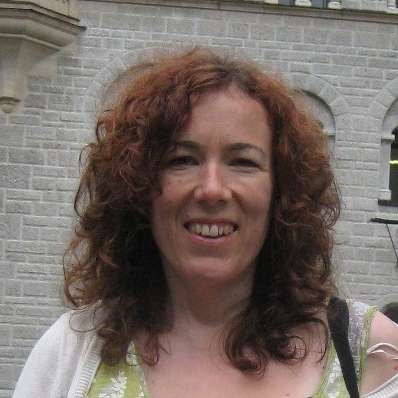Adoring and knowledgeable fans, lots of good humour and a tendency to wear silly hats: this description could fit any Proms audience, but Prom 2 was not quite the usual Prom. For one thing, the silly hats were mostly fezzes, and the audience’s expert knowledge extended to being able to identify the weird alien life forms that had invaded the Royal Albert Hall. Yes, this was the Doctor Who Prom, celebrating 50 years of the hugely popular BBC TV series. I’m a little hazy when it comes to alien-spotting, but I cunningly took my eight-year old son Edmund along to help, so I asked him to describe the concert.
The music was quite fast, sometimes jolly and sometimes serious. There were some pieces from the older series of Doctor Who but most of it came from the last couple of years and was all composed by Murray Gold. They also included some classical music pieces by Bach, Debussy and Bizet that had been used in the series. The classical bits reminded me that all music is related and I could see the connection between Bach and a modern composer like Murray Gold.My favourite part was the piece called Cyber Shard because it was quite fast and had lots of different parts all going on together. I liked the way that Murray Gold used all the different parts of the orchestra at different times to create different effects.
In the second half of the concert there were two pieces that were the winners of a Doctor Who “Create a Soundtrack” competition for schoolchildren. They were very advanced pieces of music and I thought it was inspiring to hear music written by children.
It wasn’t like a normal classical concert because there was a lot of interaction with the audience and people clapped and cheered while the music was playing. It must have been hard for the orchestra to concentrate so I think they did very well. I liked Kerry Ingram, the little girl who sang the solo in The Rings of Akhaten – in that episode the girl was frightened of singing but I don’t think Kerry Ingram was scared at all.
Murray Gold writes music to match the grand gestures of Doctor Who: loud and colourful, with grand chorus backings and the crystal clear tones of guest soprano Elin Manahan Thomas wafting ethereally above. I am the Doctor, the theme for the current (eleventh) Doctor, is absolutely thrilling, its jerky rhythm perfectly capturing the manic aspect that actor Matt Smith brings to the role. The suite of music for the Doctor’s recent female companions nicely portrayed the characteristics of each, particularly the swinging jazz-inspired passage for Donna Noble. Gold’s music works brilliantly for television, but the final piece, Song for Fifty (a birthday anthem for the Doctor), composed as a standalone piece for this occasion, was unfortunately an overly-long jumbled mess.
Offsetting Murray Gold’s emotionally charged scores, the other pieces, even Stokowski’s colourful orchestration of Bach’s Toccata and Fugue in D Minor, seemed strangely subdued but Ben Foster’s delicate and wistful reading of Bizet’s Habanera was perfect for the tune’s context in the drama: it is transmitted across space by a girl trapped alone on a drifting spaceship. His warm arrangement of Debussy’s La fille aux cheveux de lin, a piece used in a 1977 episode, was a great way to showcase each section of the BBC National Orchestra of Wales.
As this concert was to celebrate the show’s 50th anniversary, it was great to hear a selection of music from its earlier years, including synthesised sound created by the BBC Radiophonic Workshop. I was struck by how much more adventurous this music was, as the composers and sound engineers explored the possibilities of electronic music, and I couldn’t help feeling that in the show’s transition to mainstream family entertainment and big budgets, something of this inventiveness had been lost.
This Prom wasn’t just about the music, though, it was a celebration of a TV show that has thrilled several generations. The emotionally charged writing is always offset by a good dose of wit, and this was very much in evidence this evening, particularly from the warlord alien Strax who is one of the great comic characters of the current series and from the famous Daleks warning us that “THIS CONDUCTOR IS OVERACTING”. (After his performance this evening, wielding a sonic-screwdriver inspired baton, I nominate Ben Foster for Matt Smith’s replacement as the Doctor.)
The show’s main theme music was not listed in the programme, but it was no surprise that Murray Gold’s arrangement, incorporating the BBC Radiophonic Workshop’s original “woo woos” closed the concert, bringing the excitement levels to a climax – a thrilling arrangement of what must be one of the greatest pieces ever written for television.
Additional material by Edmund Smith (8).


